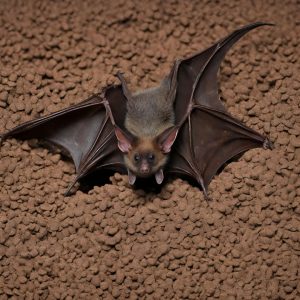A few ants in the kitchen, a mouse in the garage, or the occasional spider on the wall might seem harmless at first. Many homeowners shrug off small pest sightings, assuming they’ll go away on their own. But pests rarely disappear without intervention.
Ignoring a small pest problem allows insects and rodents to breed, damage your property, and expose your family to health risks. Pests multiply quickly, turning a minor inconvenience into a costly and unhealthy infestation. Early action is always less expensive, less stressful, and more effective than waiting until an infestation grows out of control.
How “Minor” Pest Problems Start
Most infestations begin quietly. A few crumbs left on the counter, a small gap under a door, or a dripping pipe can attract unwanted guests. Pests are experts at finding food, moisture, and shelter, even in the cleanest homes.
Ants are a common pest we all deal with at some point. They start with a few scouts looking for food sources. Once they locate one, they leave a chemical trail that leads hundreds more into your kitchen or pantry. Another common pest are rodents. Mice can squeeze through holes the size of a dime and establish nesting areas within days. Once settled, pests reproduce quickly, and within weeks, a manageable problem becomes a serious infestation.
Ignoring pest activity gives them time to breed and spread potential pathogens throughout your home, putting everyone’s health at risk.
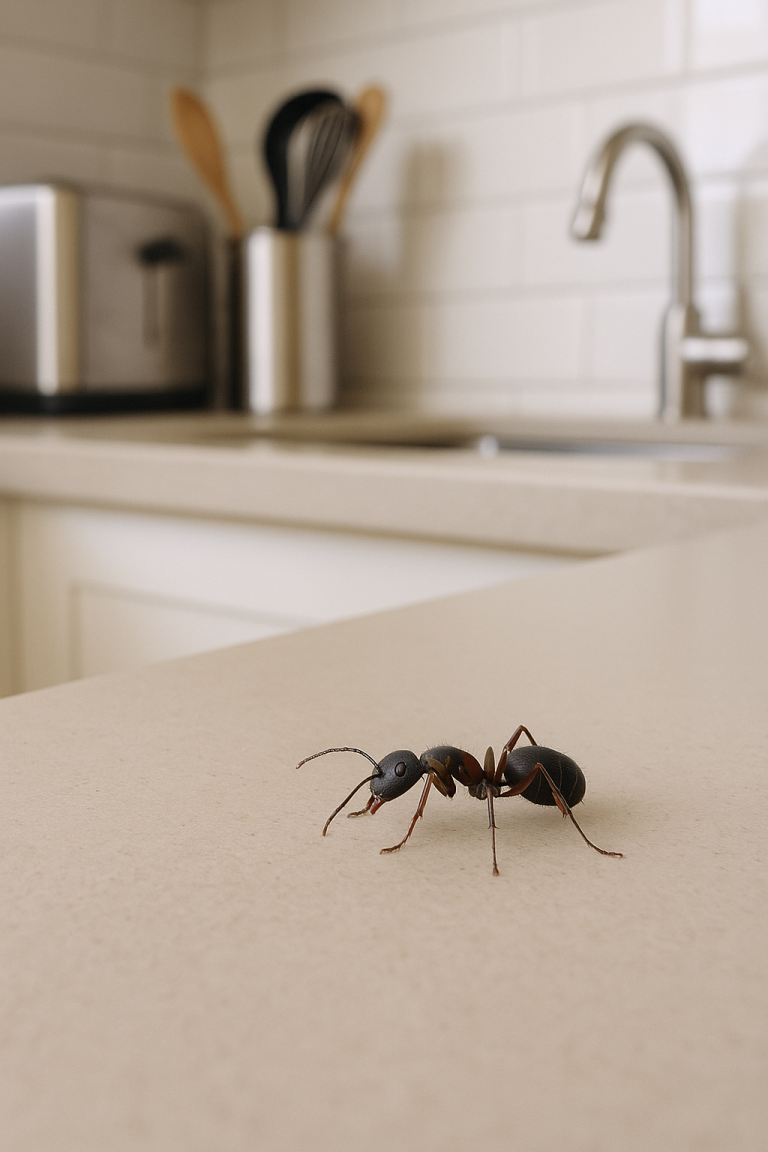
Structural Damage to Your Home
One of the most expensive consequences of ignoring pests is structural damage. Different pests target different areas, but all can weaken your home’s integrity over time.
Rodents
Mice and rats gnaw constantly. Their teeth never stop growing, so they chew through wood, drywall, plastic, and even electrical wiring. This not only damages your home but also increases the risk of electrical fires. Rodents also tear up insulation for nesting material, which can reduce your home’s energy efficiency.
Carpenter Ants and Termites
These insects can quietly eat away at your home’s wooden framework. Termites feed on cellulose found in wood, while carpenter ants excavate tunnels for nesting. Both can compromise floors, beams, and supports without being visible for months or even years.
Wildlife
Squirrels, raccoons, and bats that nest in attics can damage insulation, chew wiring, and soil the area with droppings. The longer they remain, the more extensive and costly the repairs become.
Health Risks and Contamination
Pests don’t just destroy property, they also bring bacteria, allergens, and disease into your living space.
Rodents and Their Droppings
Mice and rats can spread serious illnesses such as hantavirus, salmonella, and leptospirosis. Their droppings and urine contaminate surfaces and air, especially in kitchens and pantries.
Cockroaches and Allergens
Cockroach droppings, saliva, and shed skin can trigger allergies and asthma, particularly in children. Even if you only spot one or two roaches, they often signal dozens more hiding in dark, moist areas like under sinks and behind appliances.
Fleas, Ticks, and Mites
When rodents or wildlife enter your home, they often bring parasites with them. Fleas and ticks can transmit Lyme disease, typhus, and other illnesses to both pets and humans.
Stored Food Contamination
Ants, beetles, and moths can infest dry goods like flour, rice, and cereals. Once contaminated, these foods become unsafe to eat and must be discarded, leading to unnecessary waste.
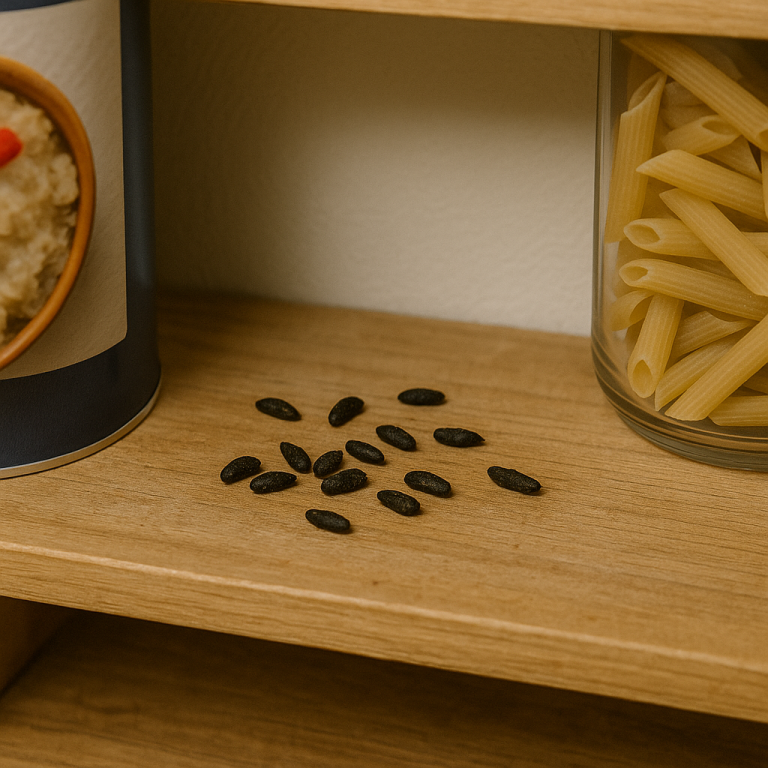
Fire Hazards from Rodent Activity
Few homeowners realize how dangerous rodents can be when it comes to fire safety. Mice and rats often chew through electrical wiring inside walls or attics. When exposed wires spark, they can ignite surrounding insulation or wooden beams.
The National Fire Protection Association has reported numerous fires caused by rodent activity each year. A single mouse in your attic can create enough risk to endanger your entire home.
Professional pest control services not only eliminate rodents but also help identify and repair these hidden hazards before they lead to disaster.
Contamination of Insulation and Air Quality
When pests nest in attics or crawl spaces, they leave behind droppings, urine, and nesting materials that compromise indoor air quality. As the waste accumulates, harmful bacteria and fungal spores can circulate through your ventilation system.
This is especially common after wildlife infestations involving bats, raccoons, or squirrels. Their waste can introduce pathogens like histoplasmosis and roundworm, creating respiratory risks for anyone in the home. If ignored too long, contaminated insulation may need complete replacement, which can be an expensive and avoidable repair.
Financial Impact of Delayed Treatment
A small pest problem might seem cheap to ignore, but the costs of inaction can add up fast. Here’s how:
- Repairs: Replacing damaged insulation, wood framing, or electrical components can cost thousands.
- Food Loss: Infested pantries often require full disposal of food items.
- Health Expenses: Allergies, bites, or illness from pest exposure can lead to doctor visits and medications.
- Property Value: Home inspections often uncover pest damage, lowering property value or complicating sales.
Routine pest control visits are far less costly than the combined financial impact of a full-blown infestation.
Damage to Reputation for Businesses
For homeowners, pests are stressful. For businesses, they can be devastating. Restaurants, warehouses, and apartment complexes that ignore minor pest problems risk failed inspections, negative reviews, and lost customers.
Even one online photo of a rodent or cockroach can damage a company’s reputation. Regular pest maintenance protects not only property but also credibility.
Emotional and Psychological Stress
Living with pests can take an emotional toll. The constant scratching noises in the walls, unpleasant smells, or fear of bugs in the kitchen can make your home feel uncomfortable.
Families often report difficulty sleeping when they know pests are present, especially in cases involving mice, bats, or bed bugs. The stress of trying DIY solutions that fail repeatedly only adds to the frustration.
Prompt professional intervention restores peace of mind and helps you feel comfortable in your home again.
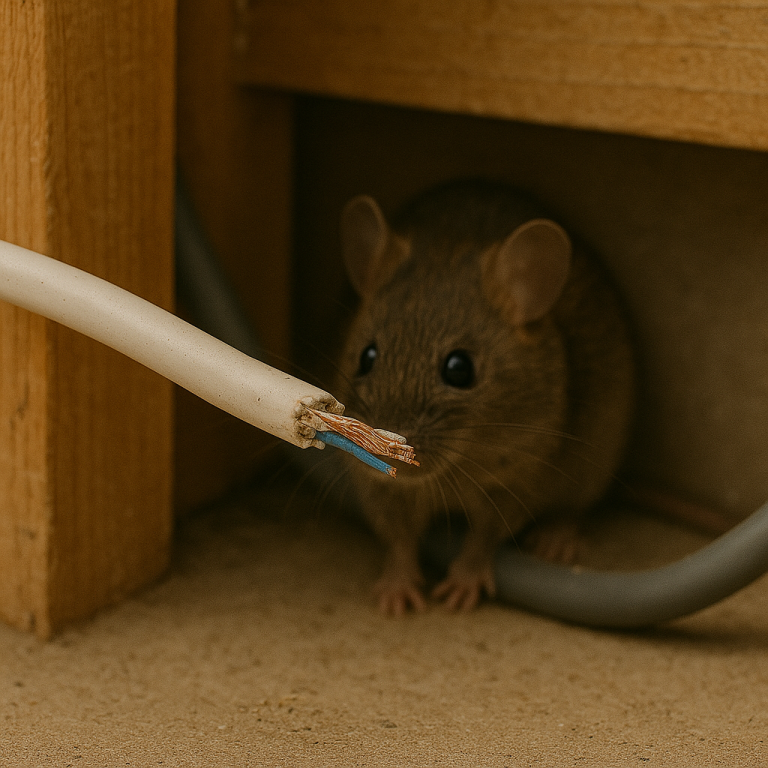
DIY Solutions Often Fall Short
Many homeowners turn to store-bought sprays or traps to handle pest problems. While these products can help temporarily, they rarely address the source. DIY treatments can also be risky if misused. Overuse of chemical sprays can contaminate air and surfaces, while improperly placed bait can endanger pets.
Most pests nest in hidden spaces you can’t easily reach like behind walls, under floors, or inside attics. Professional pest control technicians use targeted treatments that are safe, effective, and environmentally responsible.
Why Early Detection Is the Key
The sooner a pest problem is identified, the easier and cheaper it is to resolve. Regular inspections allow professionals to detect early warning signs like droppings, chew marks, or entry holes.
Pests follow predictable seasonal patterns. In spring, ants and wasps become active, whereas in fall and winter rodents start to seek warmth indoors. Scheduling preventive treatments around these times stops infestations before they start.
Many pest control companies, including Elite Pest and Wildlife Removal, offer maintenance plans designed to keep your home protected year-round.
Protecting Your Home Long-Term
Preventing pests is easier than removing them once they’ve settled in. A few simple habits can make a big difference:
- Keep food sealed in airtight containers.
- Repair leaky pipes to remove water sources.
- Seal cracks, gaps, and vents around your home.
- Trim vegetation away from siding and rooflines.
- Schedule professional inspections at least twice a year.
These steps, combined with ongoing professional support, ensure your home remains pest-free and healthy.
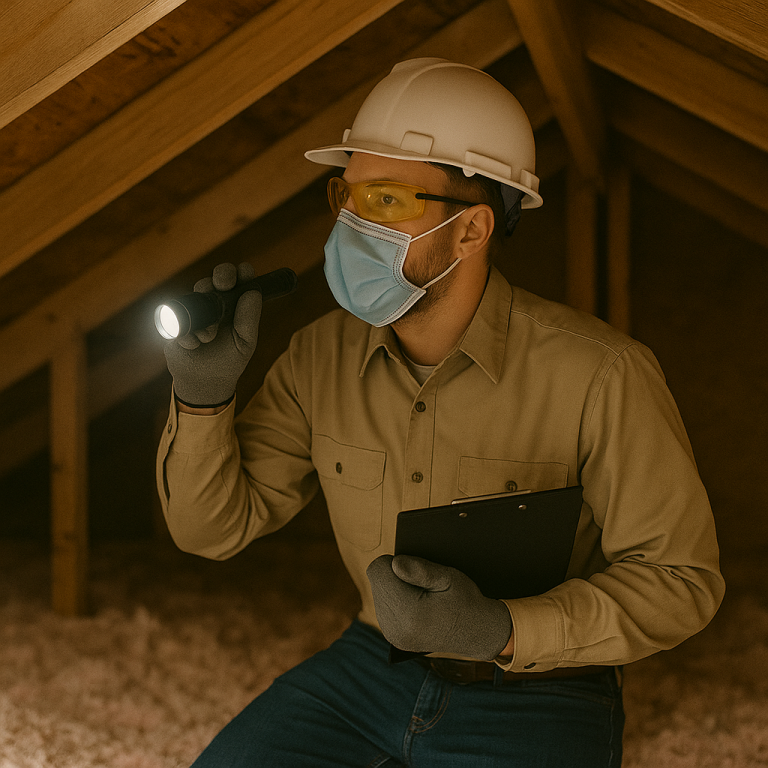
Take Action Before It’s Too Late
A small pest problem is never truly small. Ignoring early signs gives pests the time they need to reproduce, spread, and cause damage. What could be solved with a simple treatment today can become a major expense tomorrow.
If you’ve seen droppings, chew marks, or signs of nesting, don’t wait. Contact Elite Pest and Wildlife Removal for a full inspection and personalized treatment plan. Our licensed technicians provide safe, effective, and long-lasting pest control solutions for homes across Hamilton, Burlington, Oakville, Niagara, and surrounding areas.
Call 226-208-7793 or visit elitepestandwildlife.ca to schedule your inspection today.

